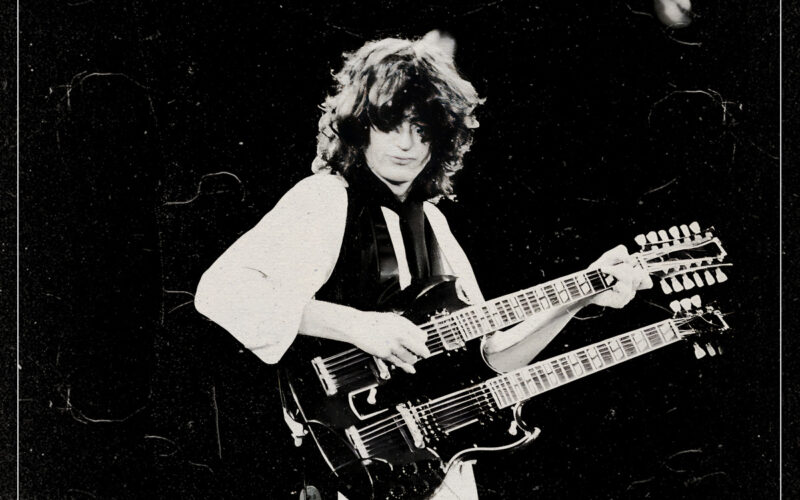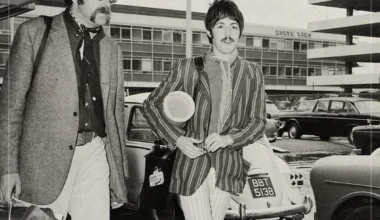Genius is now freely used in a million different contexts and to describe people in every imaginable field, to the extent that it has lost some of its meaning in the Oxford Dictionary. No longer is it used exclusively for the likes of Alan Turing or Albert Einstein, but for athletes, TV chefs, and musicians capable of making chart-topping hits. In the eyes of Jimmy Page, the term should instead be reserved for a select few, especially in music.
Following the tragic passing of Ozzy Osbourne, Coldplay singer Chris Martin poignantly paid tribute to the Black Sabbath frontman by covering ‘Changes’ and telling the Nashville crowd: “We’d like to dedicate this whole show to the incredible genius, talent, and characterful gift to the world who was Ozzy Osbourne.” Page also delivered a tribute of his own to Osbourne, writing on social media, “To dear Ozzy, Rest In Peace. My respect and love goes out to his family and friends.”
The decision to leave out the word ‘genius’ wasn’t a sly dig at Osbourne, who Page respected dearly. Instead, it’s a term he doesn’t believe can be attributed to anybody connected with the rock business, including himself. This stance may be because playing the guitar comes so easily to Page that he doesn’t believe anyone should be lauded as a genius.
Page delivered this somewhat pedantic message when discussing his favourite guitarists of all time. While he had only superlatives for Jimi Hendrix, he still insisted that the late magician wasn’t a genius. “The only term I won’t accept is ‘genius’. The term ‘genius’ gets used far too loosely in rock ‘n’ roll,” he controversially explained to Rolling Stone. “When you hear the melodic structures of what classical musicians put together and you compare it to that of a rock and roll record, there’s a hell of a long way rock ‘n’ roll has to go.”
To a degree, rock ‘n’ roll is fuelled by primal instinct compared to the methodical classical music, which takes years of training to master. Therefore, Page believes the two are incomparable art forms that exist in different realms. He elaborated: “There’s a certain standard in classical music that allows the application of the term ‘genius’, but you’re treading on thin ice if you start applying it to rock ‘n’ rollers.”
Although Page detests using the word genius under most circumstances, rules are there to be broken, and sometimes, no other word will do the talent of an individual justice, such as Bob Dylan. In an Instagram post celebrating Dylan’s birthday, Page began: “In May 1965, I experienced the genius of Bob at the Albert Hall. He accompanied himself on acoustic guitar and cascaded images and words from such songs as ‘It’s Alright, Ma (I’m Only Bleeding)’ and ‘She Belongs To Me’ to a mesmerised audience. It was life-changing. In 2013, Bob Dylan played at the Albert Hall again – this was the first of three nights – when he would feature songs from his latest album, Tempest, and some re-arranged earlier material including ‘She Belongs To Me’ and ‘Tangled Up In Blue’. It was intoxicating.”
While Dylan has incorporated rock music into his artistry, he’s also won the Nobel Prize in Literature and transcends genre. He’s a one-of-one, and categorising him in any singular box, apart from genius, would be reductive. Nevertheless, admittedly, most music fans will disagree with Page’s assessment that rock ‘n’ roll has never produced a single genius, especially considering the genre has birthed pioneers like Jimi Hendrix. In reality, genius is now a subjective term, and it’s up to each person to use it how they please. If footballers can be described as geniuses due to their ability to play a 40-yard pass, then countless rock ‘n’ rollers also fall into this category, despite what Jimmy Page says.






